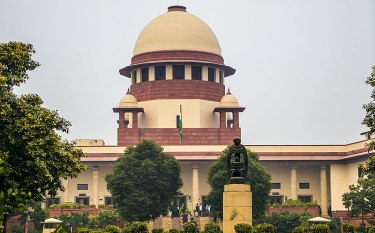
The Catholic Diocese of Gorakhpur has announced its intention to challenge a recent Allahabad High Court ruling in India's Supreme Court. The decision comes in response to a court order requiring the diocese, along with the Uttar Pradesh state government, to jointly pay compensation of ₹10 lakh (approximately £9,500) to the heirs of a villager whose land they were found to have wrongfully occupied.
Father Justin Cheruparambil, spokesperson for the Gorakhpur diocese, told UCA News on 12 September, "We are going to challenge the high court order in the Supreme Court as we do not agree with its findings that the diocese illegally encroached upon the land." The diocese maintains that it legally acquired the land on a 99-year lease from the state government three decades ago for the expansion of the Church-run Fatima Hospital in Gorakhpur town.
The disputed land, measuring nearly one acre (93 decimals), was initially part of a rural area but has since undergone significant urban development. Father Cheruparambil suggested that the recent claim of ownership by the plaintiff might be due to the substantial increase in land value as the area has become urbanised.
The Allahabad High Court's ruling, delivered by Justice Kshitij Shailendra on 10 September 2024, came as a result of a protracted legal battle involving the plot of land in Gorakhpur, Uttar Pradesh. The court found that the state government and the Catholic Diocese had effectively 'grabbed' the land belonging to Bhola Singh, a local villager, depriving him and his legal heirs of its use for more than 32 years.
According to court documents, Mr Singh had filed a suit stating he was in possession of the plot when the Catholic Diocese began constructing a boundary wall on the property. When Mr Singh objected, he was allegedly threatened with the construction of a hospital on the land. The court determined that Singh's land was never legally transferred or declared surplus, and thus, the lease granted to the diocese was invalid.
In his ruling, Justice Shailendra stated, "Once this court has arrived at a conclusion that the action of the state, as well as appellant, did not have any sanction of law, rather it amounted to grabbing land of a rustic villager and committing trespass over it, the instant appeal deserves to be dismissed with a heavy cost."
The court was particularly critical of the manner in which the land was acquired, suggesting a collaboration between state officials and the diocese. "The State and the appellant together and with the aid of the entire State machinery at the district and secretariat level by manipulating documents, one after another resulted in depriving the plaintiff and his legal heirs of possession and utilisation of their immovable property for a period of more than 32 years," the judgement read.
The ruling has significant implications for property rights and the transfer of immovable property in India. Justice Shailendra emphasised that allowing the transfer of immovable property through mere exchange of letters or affidavits would set a dangerous precedent, potentially circumventing established laws such as the Transfer of Property Act and the Registration Act.
The court elaborated on the legal intricacies of the case, noting that the lease created in favour of the appellant was for a period of 90 years and therefore had to be through a recognised mode of transfer. The court found no evidence that the initial transfer by Mr Singh to the state government had any legal sanction.
Justice Shailendra remarked, "This Court is conscious of the situation that if transfer of immovable property by a citizen to the State or inter-se two citizens is permitted through exchange of letters or affidavits, it would lay down an unprecedented and unique but absolutely illegal mode of transfer of property."
The origins of the dispute date back to Singh's legal challenge against the diocese's land acquisition. Singh had argued that the land, which was used by the diocese for constructing a hospital, was unlawfully taken from him. He contended that the state government had no right to lease his land to the diocese. Singh's objections were initially dismissed, but the First Appellate Court later sided with him, leading to the current High Court ruling.
The court also invoked the Latin legal phrase "fiat justitia ruat caelum," meaning "Let justice be done though the heavens fall," to underscore the importance of upholding the law regardless of the consequences.




